
Anti-tax Tories are circling Rishi — they scent blood
Rishi Sunak gets up very early, even at the weekends. In good time, then, to receive a ping on his messages on Sunday, alerting him to the arrival of the emergency report he had commissioned from ethics adviser Sir Laurie Magnus into party chairman Nadhim Zahawi’s tangled tax affairs. Sir Laurie found the ministerial code to have been breached no less than seven times while Zahawi’s tax omission was being investigated by HMRC.
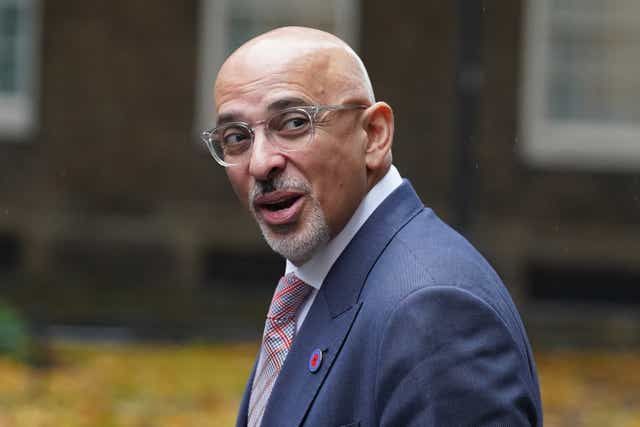
Already accused of being slow-footed in dealing with the Tory party’s omni-crises, Sunak acted fast when it came to Zahawi
As the PM gets set to mark 100 days in office tomorrow, he is aiming to recast himself as a “sleaze-buster” cleaning house after the sloppiness of the Johnson years and Truss-era disruptions. On Monday the PM insisted that he had “acted pretty decisively”, noting that he could not be held accountable for misconduct under predecessors.
This latest personnel drama, with its overtones of rich-folk arrogance, is far from the end of the dilemmas besetting No 10. Growing splits at senior levels in the party — and among ministers — about tax and economic policy threaten to unbalance the central plank of Sunak’s tenure — namely his reputation as a man who “thinks in spreadsheets” and understands how to improve the economic outlook for Britain and its voters.
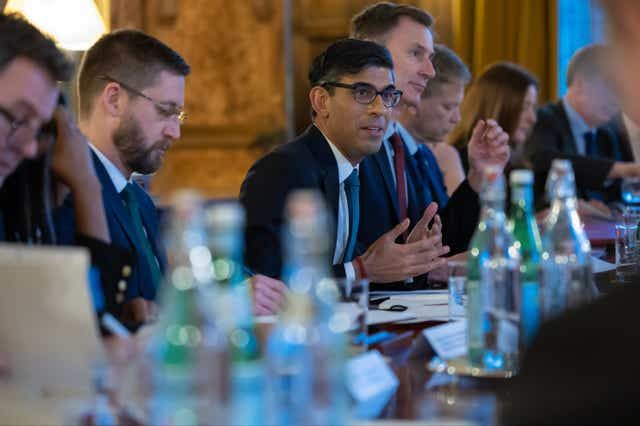
A subdued Cabinet meeting yesterday featured brief mention of the Zahawi dismissal
But yesterday’s news that the UK economy was faltering — faring worst of any country in the developed world, according to the IMF — was a reminder of how high the stakes are for a prime minister who came to power promising to find a way through the country’s prosperity problems. “If he can’t inspire hope on that front, what is the point of him?” asks one (recently dismissed) minister. “He is not a front-of-house leader like Boris, or a fiery wildcard like Liz Truss. He needs to show he has a way out of the high-tax, low-growth trap — and a lot of us don’t see that.”
Even his allies are rattled by the growing sense that the Government is caught in a doomloop. A subdued Cabinet meeting yesterday featured brief mention of the Zahawi dismissal. The main topics of conversation, a source reports, were the strikes, the hope that inflation would fall shortly — and the public mood. Sunak kept the meeting tightly to just under an hour.
His travails are not only the story of an uphill slog through a difficult winter of widening strikes — teachers joined the fray today after transport and health workers, adding to pressure on families, the cost-of-living crisis keeping food bills worryingly high for many and the energy price pressures stemming from the war in Ukraine. The rumbles of ideological enmity are growing louder in his own ranks, led by loyalists to Truss and Johnson, demanding a different, higher-risk approach to the economy than Sunak’s debt-averse, inflation-focused delivery.
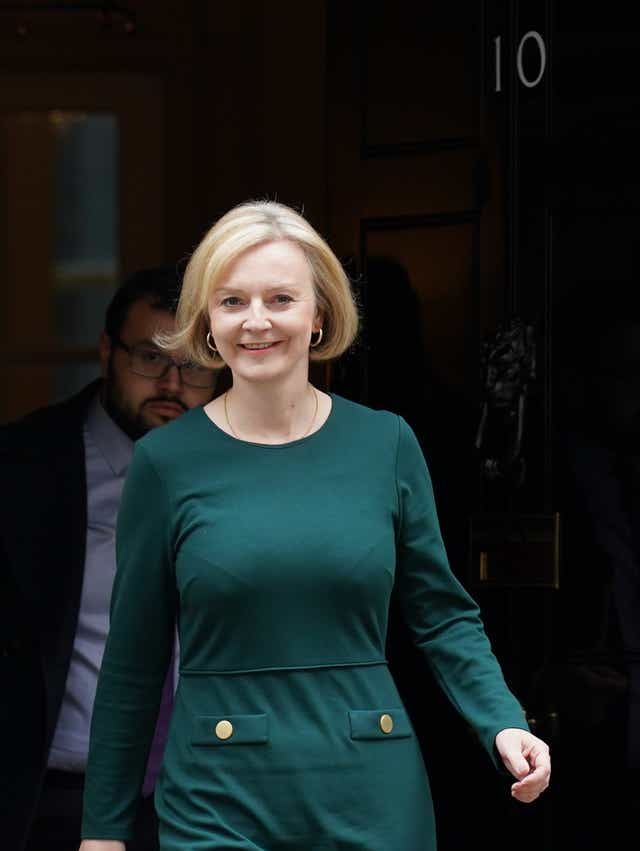 “Former prime minister Liz Truss tells
allies that she takes the blame for “not aligning” the political
backdrop and media impact of a raft of dramatic tax-cutting measures,
and might have timed the 45p tax cut differently. She does not, however,
accept that the direction was wrong.”
“Former prime minister Liz Truss tells
allies that she takes the blame for “not aligning” the political
backdrop and media impact of a raft of dramatic tax-cutting measures,
and might have timed the 45p tax cut differently. She does not, however,
accept that the direction was wrong.”
William Hague, the former Tory leader and the PM’s predecessor in his Yorkshire seat, warned of the peril in a column under the headline the “low-tax loons are circling”.
The phrase has become commonly used to refer to a group of prominent Conservatives who have not accepted Sunak’s “steady-ism” recipe. They range from Liz Truss, who has never abandoned her faith in the massive tax-cutting Budget she attempted in a dramatic short-stay tenure as leader last year despite the adverse reaction of markets, to Boris Johnson, who unveiled a flattering portrait of himself (of course) at the High Tory retreat of the Carlton Club recently. He predicted that the Tories could recover if they focused on creating a “low-tax, global Britain”. The dog-whistle message is clear — Sunak should deliver tax cuts in short order.
If the “low-tax loons” have a spiritual home, it is the elegant surroundings of 5 Hertford Street, the Mayfair club owned by Robin Birley. The luxuriously upholstered haunt where Johnson once plotted his leadership bid these days sees Johnson and his old friend and party donor Ben Elliot huddling in intense discussions — or Truss in her sharply tailored dresses and bright jackets lingering with Tory friends over white wine. Crucially, Truss tells allies that she takes the blame for “not aligning” the political backdrop and media impact of a raft of dramatic tax-cutting measures, and might have timed the 45p tax cut differently. She does not, however, accept that the direction was wrong. Sunak and his Chancellor Jeremy Hunt are therefore braced for more “incoming fire” (to cite a colleague of the Chancellor) from tax opponents.
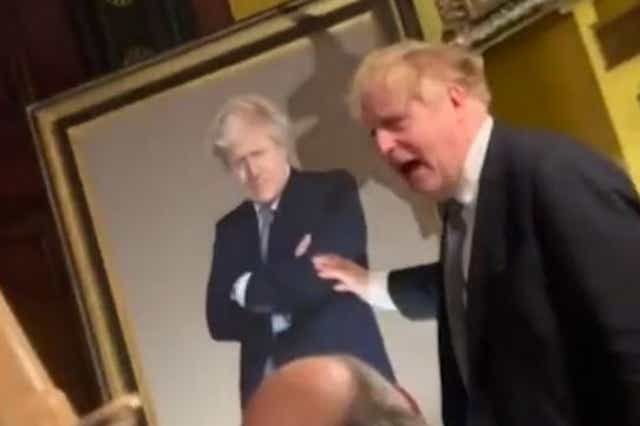
Boris Johnson with his new Carlton Club portrait. “He predicted that the Tories could recover if they focused on creating a ‘low-tax, global Britain’. The dog-whistle message is clear — Sunak should deliver tax cuts in short order.”
Longstanding footsoldiers like Sir John Redwood MP are also getting louder. In a forthright New Year message, Sir John noted caustically: “The Prime Minister and Chancellor have choices. If you want a better 2023… then join me in calling for growth policies. Let us give freedom more of a chance.” Jacob Rees-Mogg meanwhile (set to host a show on GB News — the broadcast home of the low-tax brigade) has never backed off calls for corporation tax cuts.
In many ways, this is more a disagreement about timing than beliefs: Sunak has previously argued that there is a moral case for lower taxation and says he would “love to cut taxes” while adding that the public “weren’t idiots” — doubtless with a view to keeping the option open for close to a 2024 election. Allies say the Budget in six weeks’ time will not feature tax-slashing but focus on further attacking inflation, debt — and some sweeteners for health workers to end industrial action.
That cuts no ice with the “loons” — not least because they do not consider themselves “idiotic”. To look at it from their angle, a UK economy which has been sluggish since the financial crisis of 2007-8 need more than orthodox solutions — it needs hot-wiring to perform better and faster, and the more downbeat the data (as with the IMF report this week), the more they feel vindicated. Add to that a darkening mood in general about Sunak’s tenure, which has seen his Home Secretary Suella Braverman (also a natural low-tax freedom fighter) in trouble for sending private government emails from her mobile phone and Dominic Raab, the deputy PM and Justice Secretary, accused of serial bullying, which he denies. A report is forthcoming into allegations about the Justice Secretary which will add to the PM’s distraction — and doubts about the wisdom of his original aim of “balancing” the Cabinet between Right and centre to stabilise his tenure.
Certainly, Sunak’s use of the phrase “idiots” in a rhetorical firefight widened the division between the two camps. But the comments risked opening a fresh conflict with Conservative MPs who have been making the case for tax cuts in the spring Budget, in light of improving economic forecasts and as a way to increase growth. Sunak said the pandemic and the war in Ukraine had left the state of public finances “not where it needs to be”. Another warning for Sunak, as May’s local elections — a likely “horror show”, says one constituency boss — approach is that for all the attempts to calm the turmoil of the Johnson-Truss period, the difference between the Prime Minister and his two predecessors is becoming difficult to discern. Or put more bluntly by a Yorkshire backbencher: “It’s like living on Orwell’s Animal Farm — you overthrow one useless leader to find the next one is bad, just in a different way.”
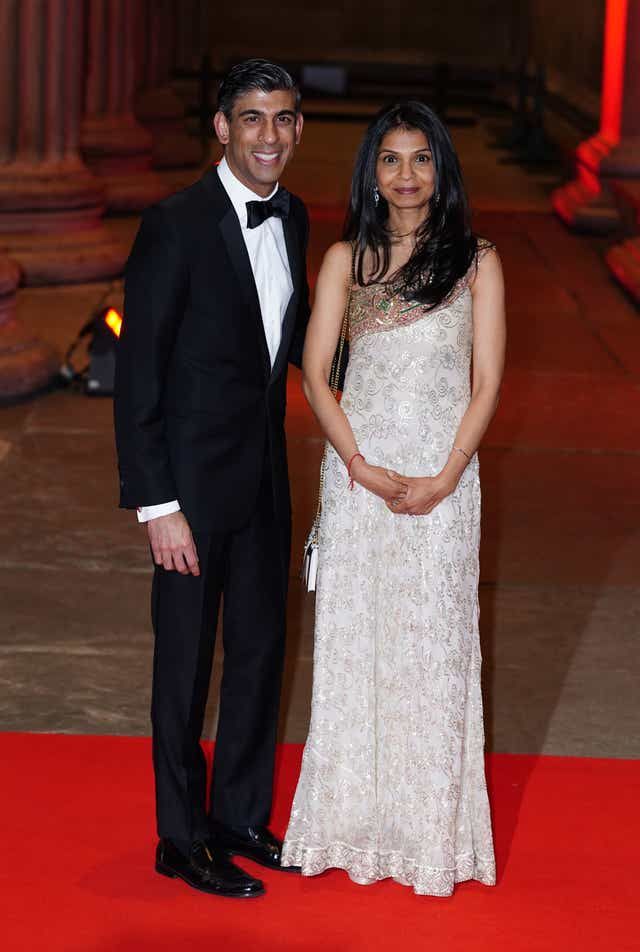 “Writing this month’s Tatler magazine
cover with access to the Sunaks’ friendship circle, my impression was of
a couple very comfortable with spending huge sums on interiors. Some of
this is for private pleasure, though they were also generous in funding
a refurbishment of No 10 rooms when Sunak was Chancellor.”
“Writing this month’s Tatler magazine
cover with access to the Sunaks’ friendship circle, my impression was of
a couple very comfortable with spending huge sums on interiors. Some of
this is for private pleasure, though they were also generous in funding
a refurbishment of No 10 rooms when Sunak was Chancellor.”
Labour has picked up on the twin weaknesses of Sunak’s sense of remoteness and the fact that his personal wealth and international lifestyle can jar against a backdrop of cash-strapped times. The PM is a financial success, on his own creditable account as a hedgefunder — and by marriage into the global financial elite. His wife, Akshata Murty, is a principled supporter of small businesses in the couple’s Yorkshire hometown of Richmond. Writing this month’s Tatler magazine cover with access to the Sunaks’ friendship circle, my impression was of a couple very comfortable with spending huge sums on interiors. Some of this is for private pleasure, though they were also generous in funding a refurbishment of No 10 rooms when Sunak was Chancellor.
The confluence of wealth and leadership is hardly new in the Conservatives. Yet travelling around Tory constituencies, I am struck by how loath many members are to accept the Sunak medicine and a twin concern, particularly from MPs in the Midlands and North, is that the Sunaks don’t connect well to ordinary voters facing the squeeze.
“The party is still not buying him,” says a board member of a major British business close to the party. “Lots of them want Boris back. The others want a ‘red meat’ tax-cutting diet and won’t stop agitating for it.”
The party is still not buying him. Lots of them want Boris back. The others want a ‘red meat’ tax-cutting diet and won’t stop agitating for it
As this fault line widens, Sunak will focus his efforts on public spending deals prioritising the NHS. He will also point to the latest statistics from the IMF as a sign that the UK is not in a position to take more risks. That is unlikely to reassure his internal critics. “It just all sounds very… Labour,” says one prominent backbencher who reluctantly backed Sunak as the “least worst” choice. “Why vote for us after 12 years and a lot of shit-shows, unless we are different to the Starmerites?” Behind the tax-cut row lurks the deeper trap for Sunak: too many of his own party do not think that he can save them from defeat. He does not have a lot of time to convince them that they are wrong.










